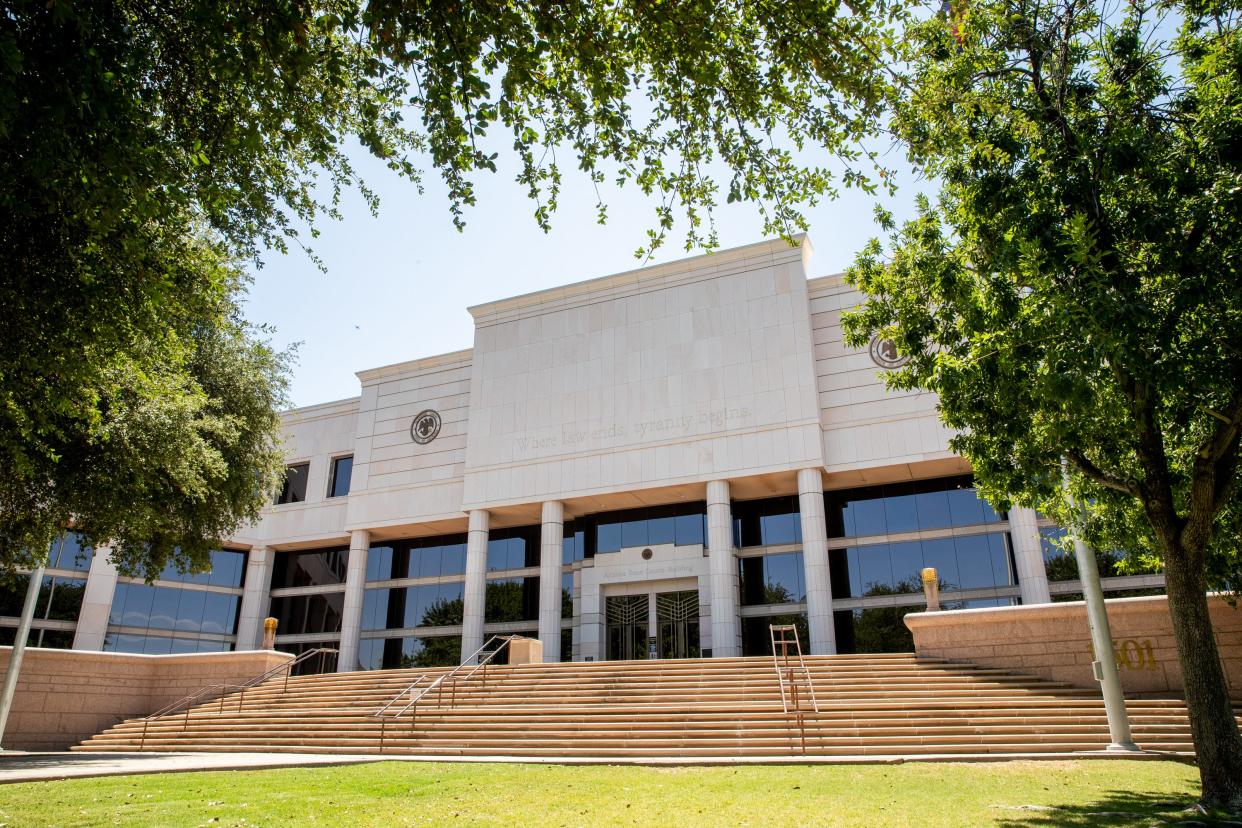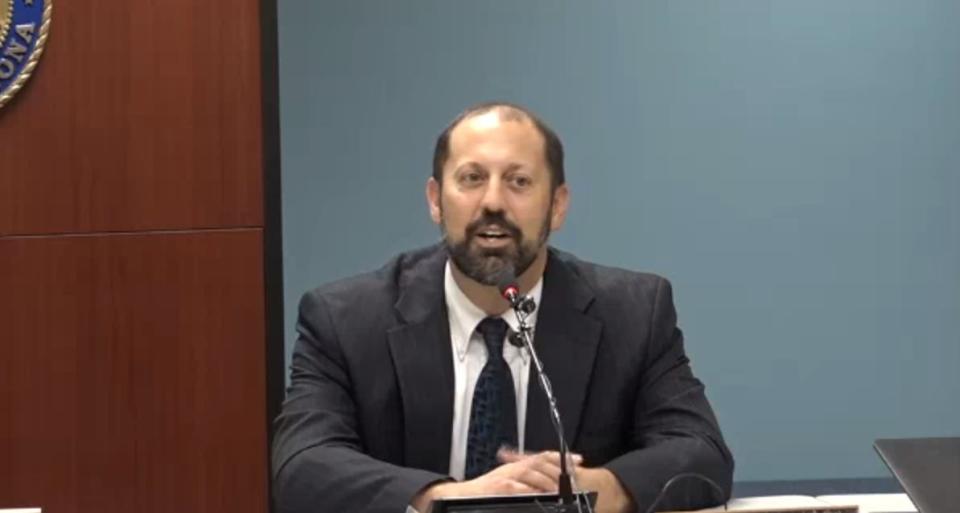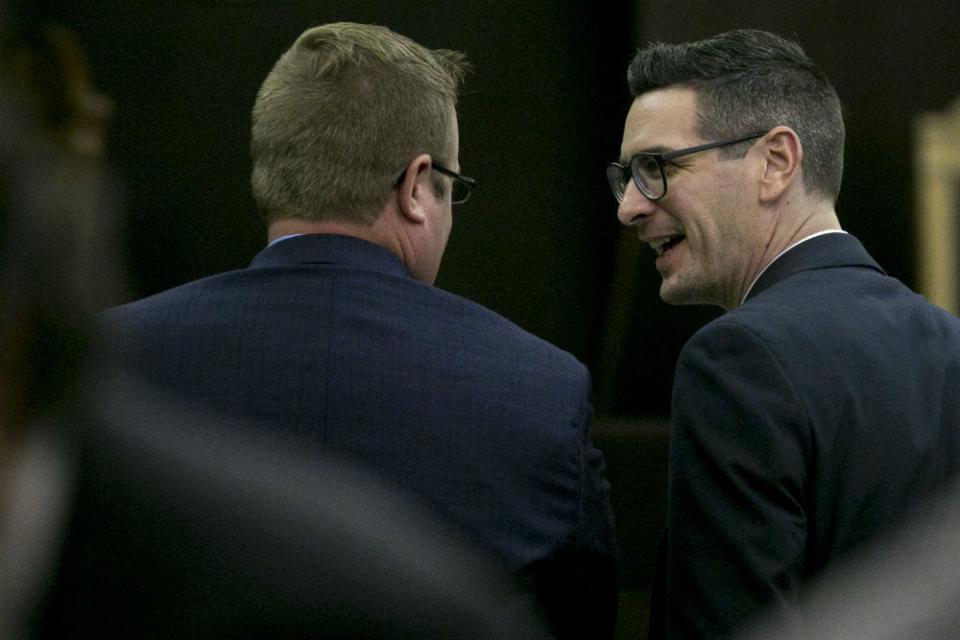Arizona Supreme Court weighs victims’ rights against the rights of defendants

The Arizona Supreme Court this week sought to establish a standard a defendant must satisfy when seeking evidence from a victim of a crime, under limited circumstances, that preserves the rights of both parties guaranteed by the state and federal constitutions.
The ruling, in a case called Draper v. Gentry, forced the state's high court to juggle the right to a fair trial and due process for the accused, as enshrined in the U.S. Constitution, with the rights to privacy for crime victims, as protected by Arizona's constitution. It stemmed from pre-trial litigation in a 2020 murder case.
How potential evidence would be retrieved and handled was key to the case.
In its split opinion issued Monday, the court majority found that a man accused of murder had to meet a higher burden to have a third party collect GPS tracking data from the truck of another man who was present at the crime scene, before presenting it to a judge for review.
The owner of the truck tried to fight the collection of that evidence, claiming that the Arizona Victims' Bill of Rights, enacted in 1990, protected his privacy from intrusive searches.
While the ruling was narrowly focused on these particulars, it could have broader implications, legal experts agree. That's because many crimes are committed within families, with victims and defendants who have competing rights.
Here's what happened in this case, according to a recap in the Supreme Court ruling.
The plaintiff in the case, Lane Draper, is the brother of murder victim Grant Draper. Grant was murdered in 2020 after a night of drinking with his brother and two other men, Jordan Nez and Roessel Jackson.
The men gave contradictory accounts of what happened. Lane and Jackson claimed they left the scene, while Nez said he blacked out and woke to find Grant’s body surrounded by blood. Police never recovered the knife that killed Grant.
But another tenant in Nez’s apartment complex called 911 to report a truck blocking his parking space. The driver and the truck’s description matched that of Draper and his truck.
During the investigation, the Phoenix police sought and received a search warrant for Lane’s truck and GPS. They found a knife, but never retrieved the GPS data.
Nez was charged with second-degree murder.
Subsequently, Nez sought the GPS data from Lane’s truck, to test Lane's alibi that he had left the scene and returned. Nez hired a third party who could get the data from Lane’s truck, and then provide it to a judge who would decide whether any of the data was relevant to the case.
Lane challenged the request in the courts, citing the Arizona Victims’ Bill of Rights.
Even though he was a potential suspect in the murder, Lane is considered a statutory victim because it was his brother who was murdered. Under Arizona law, crime victims can refuse requests for evidence pre-trial.
"This case presents a confluence of clashing constitutional rights and principles that we seek to reconcile and harmonize," the majority of the court opined.
The court tried to strike that harmony by setting stricter standards for a judge's review of such evidence in an effort to protect the victim's privacy in the pre-trial collection of material that could help the defendant.
The Arizona State Supreme Court heard the case, it wrote, to determine whether the standard established in existing case law is the proper standard in the Nez prosecution, saying the debate "presents an issue of statewide importance.”

Chief Justice Robert Brutinel, as well as Justices John Lopez, James Beene, William Montgomery, and Kathryn King, ruled that if the data were to be handled by a third party, then the higher standard is needed.
Justice Clint Bolick and Vice Chief Justice Ann Timmer, partly dissenting, argued that the majority opinion inappropriately set too high of a standard with no legal justification.
“The proper course is not to deny disclosure or impose requirements that are nearly impossible to meet, but to allow it in a way that is least burdensome to the victim,” Bolick wrote.
David Euchner, a criminal defense lawyer, is with the Arizona Attorneys for Criminal Justice, which submitted an amicus brief in the case.
“It's difficult for courts to strike the appropriate balance between giving defendants the tools they need for investigating their case and demonstrating their innocence, versus harassing people unnecessarily,” Euchner said.
“Our position is that the defendant has a right to present his defense, and he has a right to investigate information that would help that defense,” Euchner said. “And statutory victims do have rights against harassment, but they don't have the right to thwart a federal constitutional right to a defense.”
The state supreme court got it right, Euchner said.
“When the two rights are in conflict, the defendant's right to due process has to take precedence,” he said.
Euchner noted the issue could have been solved much earlier in the case, had Phoenix police or the Maricopa County Attorney’s Office told Nez that a warrant for the GPS data had already been approved, but not acted upon. But according to Euchner, that information wasn’t shared with Nez until two years into his prosecution.
“On a case with this much of a fight over the issue, it’s very surprising to see this kind of a mistake,” Euchner said.
ACLU of Arizona legal director Jared Keenan was also surprised that the police didn’t follow through with the initial search.

“The police got a warrant to search Mr. Draper’s truck, which is precisely what Mr. Nez wants to do,” Keenan said. “But for some reason, the police didn’t execute the warrant.”
The ACLU of Arizona is not involved in the case, but Keenan said the opinion will have a big impact on the protection of constitutionally protected rights.
“You have a situation here where the victims' rights statute is being used, not as a shield to protect victims from harassment and to ensure that they are being treated with dignity, respect and fairness,” Keenan said. “Instead, the victims' rights statute is being used as a sword to prevent the truth-finding function of the system, and to prevent what could very well be relevant evidence from being admitted in a trial.”
The Maricopa County Attorney’s Office and attorneys for the Arizona Voice for Crime Victims, which argued on behalf of the plaintiff, did not respond to requests for comment on the opinion.
Now the trial courts have a new precedent to follow in similar future crimes.
Euchner said while the case may seem unique, many crimes occur within families.
“This could happen in every intra-familial case, where a family whose statutory victim is a suspect or a defendant,” he said. “Every homicide victim has brothers, sisters, mothers, fathers, children, and all of them are statutory victims.”
This article originally appeared on Arizona Republic: Arizona high court issues key ruling in 2020 Phoenix murder

